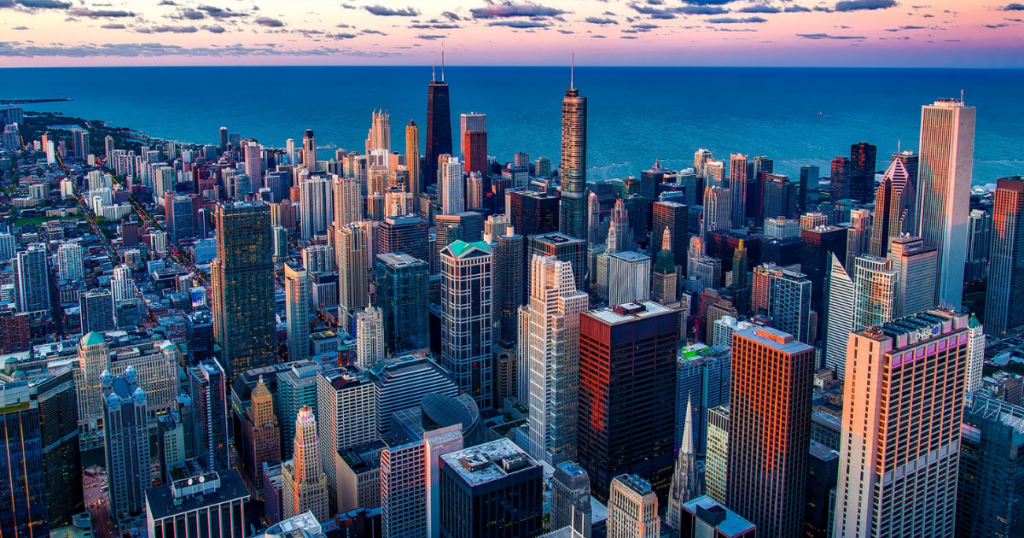Sign up below to receive the latest insights into the multifamily market from redIQ. We swear, we won't blow up your inbox.
The Future of Multifamily in Chicago

Chicago Multifamily: Background
Chicago’s 2019 elections brought a new generation of politicians to power in the Windy City, ending dynasties and booting incumbents from power. With these officials and their novel perspectives, a new era has come for real estate, and multifamily, in the city. The new mayor, Lori Lightfoot, and a resurgent socialist contingent on city council ran on promises of changing zoning processes, implementing new taxes, and creating barriers to gentrification. These promises mean Chicago has joined a group of jurisdictions including Sacramento New York, and Oregon where newly energized politicians are eager to meet demands from constituents over rising rents, no matter the potential consequences.
Impact on Ongoing Developments
Under Mayor Rahm Emanuel, Chicago became the city of the real estate megaproject. Massive mixed-use developments including Lincoln Yards, The 78, Riverline, and others have vied for city subsidies and the few remaining large plots of empty land within city limits. Chicago, formerly an industrial powerhouse, has tracts as large as neighborhoods that have never seen remediation or development. Like Hudson Yards in New York, recent, successful bids to make these plots functional have heightened expectations for what developers can produce in Chicago. Completion of each project would mean residences, offices, public space, and more for Chicagoans, transforming fallow sites into fully functioning parts of the city’s fabric and revitalizing the neighborhoods that border them.
However, Lightfoot may have endangered that future. Though her term only began in May, her commitment to following through on campaign promises has stalled Sterling Bay’s development Lincoln Yards, destined for the site of a former steel mill. The mayor has long been skeptical of the project and the subsidies it received under Emanuel, and her position has remained firm during her time in office. As of August, the project’s previously approved tax increment financing (TIF) remains partially in jeopardy. Admittedly, the mayor’s office has not intervened to block the project entirely, but the administration’s lack of support is very different from Emanuel’s staunch support for Lincoln Yards and development in Chicago generally.
Lightfoot has implemented other reforms with more positive implications. To kick off her term, the mayor eliminated “aldermanic privilege”. This partially legal but mostly informal set of rights formerly granted to city council members (known as aldermen gave them outsize influence on development in their districts. For real estate professionals, this change means fewer “mini-mayors” with whom to contend, and for members of city council, it means no more veto authority over matters of zoning, which allowed their will to take precedent over approved land uses. In the past, projects of all sizes faced the aldermanic hurdle. Provided “privilege” never sees reinstitution, real estate professionals in Chicago should have a clearer approval process and fewer arbitrary barriers<.
A Reinvigorated City Council
New city council members, including 40th Ward representative Andre Vasquez, support regulations and taxes that will increase operating costs for multifamily companies active in the Chicago market. Like other Democratic Socialists elected in Chicago this year, Vasquez supports a 1.2% tax on real estate transactions over $1 million. The money would go to building shelters for the homeless in the city. Vasquez and others also support a new regulation that would require developers designate up to 30 percent of new buildings in gentrifying areas affordable to guarantee existing residents are not forced to leave their neighborhoods.
Conclusions
Though Chicago’s newest power brokers may alter the future of the large-scale developments that Emanuel encouraged, officials have yet to pass the other measures promised during the campaign season. The reinvigorated socialist bloc in city council has only had power for three months, so developers and real estate owners will need to wait to see the full impact of their caucus. Looking to other jurisdictions, such as New York City, where new regulations have disrupted business as usual should give multifamily professionals an idea of what could happen in Chicago in the near future.
